Ministry of Earth Sciences
INCOIS and NDMA organizes Conclave on Marine Multi-Hazards Services for the Indian Coastline in Chennai
Posted On:
29 AUG 2025 5:59PM by PIB Chennai
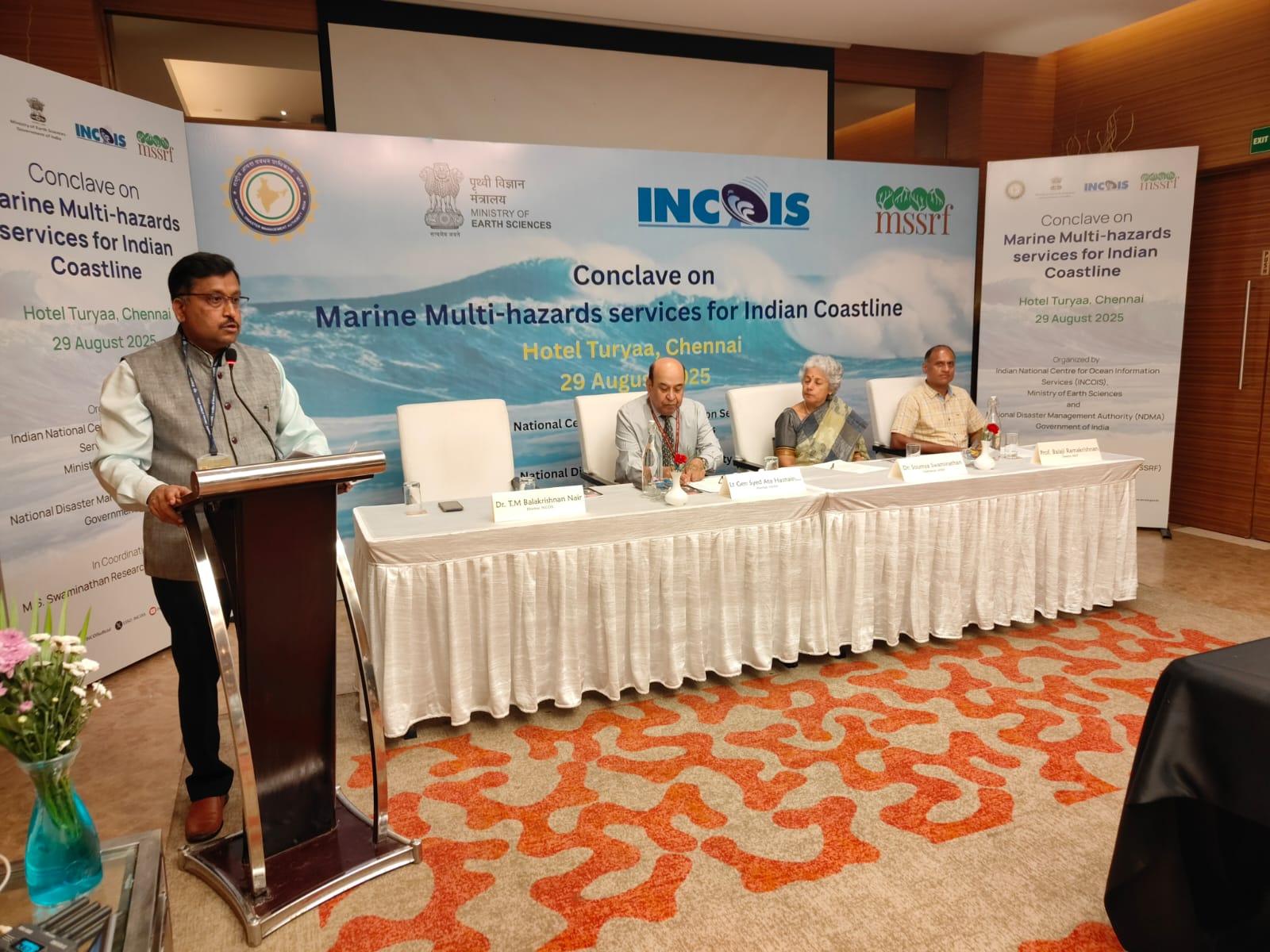
The Indian National Centre for Ocean Information Services (INCOIS), Ministry of Earth Sciences, Government of India, in collaboration with the National Disaster Management Authority (NDMA), organised the Conclave on Marine Multi-Hazards Services for the Indian Coastline in Chennai on 29 August 2025.
The conclave was inaugurated by the member of NDMA Lt. Gen. Syed Ata Hasnain (Rtd). He said that a new technology of common alerting system through cell broadcast would be launched on trial basis from September 1, to help fishermen community be safe from any cyclones.
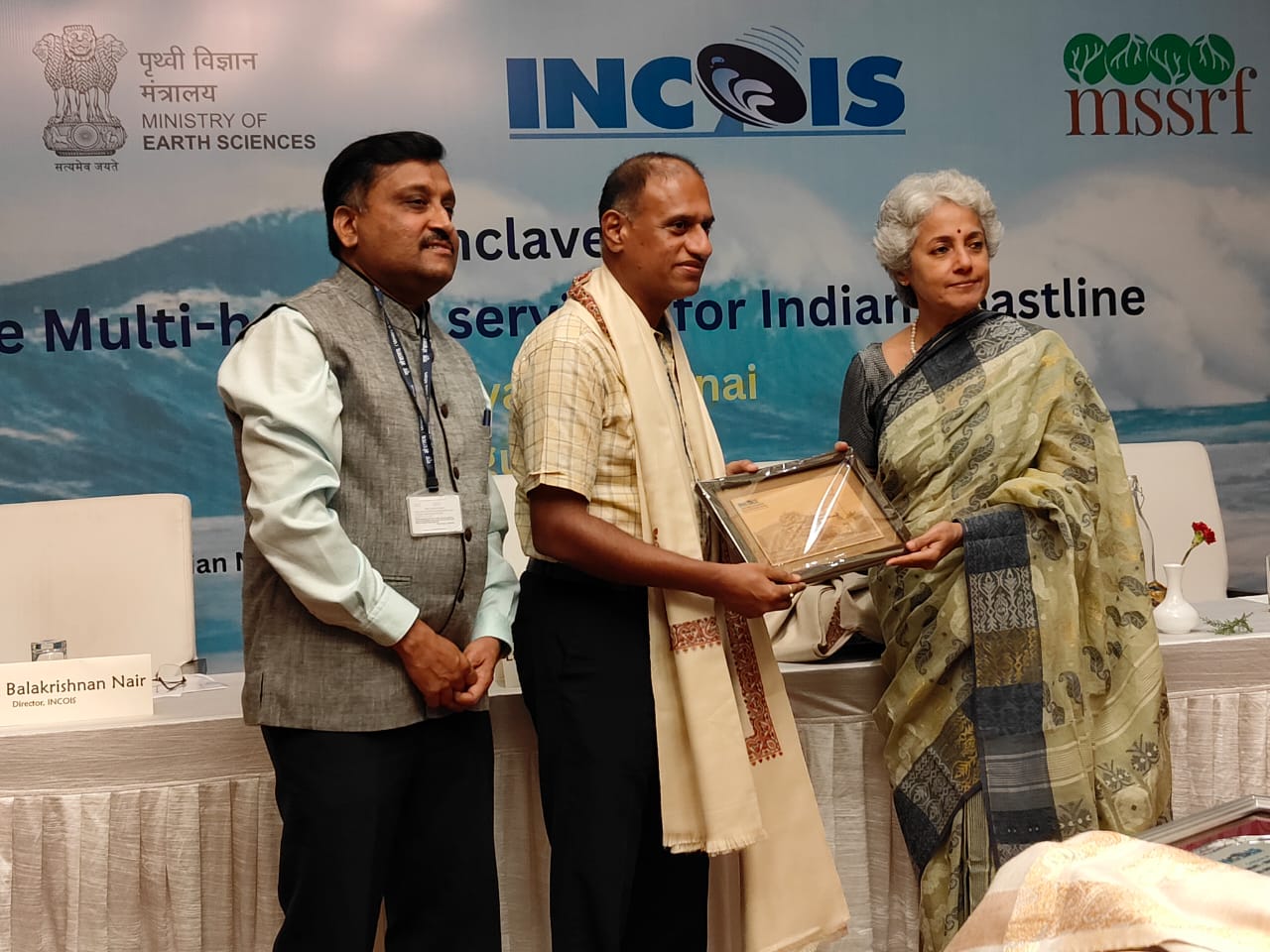
Mr. Hasnain who is the member of NDMA said the cell broadcast application would have advanced technology where even if the mobile was in silent mode, it will generate a sound to alert the fishermen and those having the app about any natural calamities or any cyclones. He cited the efficient handling of the Cyclone Biparjoy, which hit Gujarat coast in 2023, where multi-stakeholders including State Disaster Management Authority (SDMA) worked in tandem by evacuating those in low-level areas and by sending more than 32 million alert messages helped prevent loss of life. He wanted the public to download the Sachet app of NDMA or Samudra app of INCOIS for getting various weather alerts.
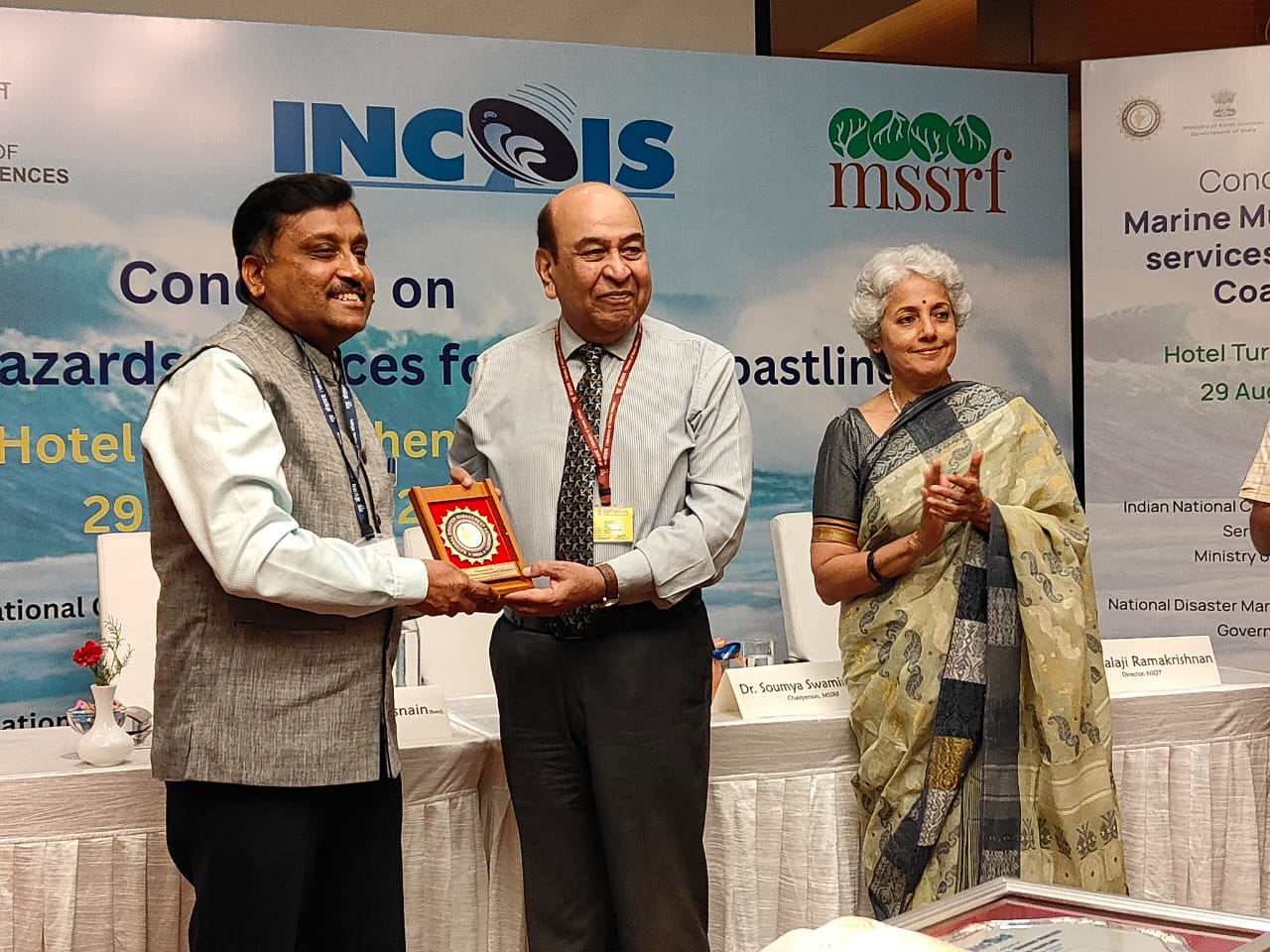
Lt Gen Syed Ata Hasnain remarked ‘INCOIS is playing a major role not only in safeguarding India’s coasts but also in advancing disaster diplomacy. Multi-hazard preparedness is the bedrock of resilience, requiring joint action by science, governance, armed forces and communities alike.’
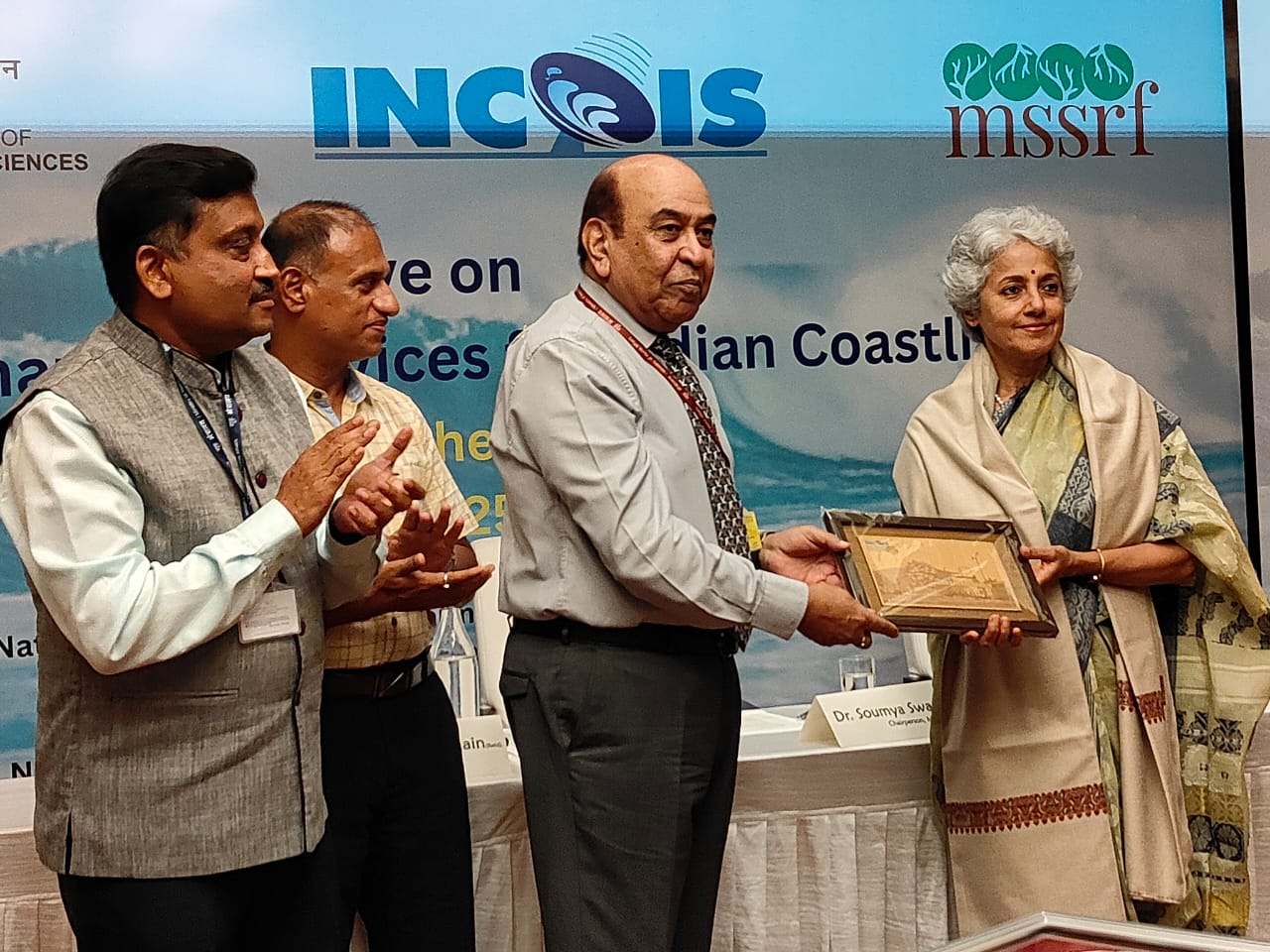
Welcoming delegates, Dr T.M. Balakrishnan Nair, Director, INCOIS emphasized its ‘Science to Society’ vision and reaffirmed the Centre’s record of zero false alarms for tsunamis, which has helped avoid unnecessary evacuations while protecting public trust in early warnings. ‘Preparedness is the strongest form of protection,’ the welcome noted, calling for deeper partnerships among disaster managers, maritime agencies, industry and communities.
Dr Bala stressed that “Our vision is to ensure that every life and livelihood along India’s coast is protected through science-driven early warning services. Preparedness against marine multi-hazards is not optional; it is essential for resilience.’
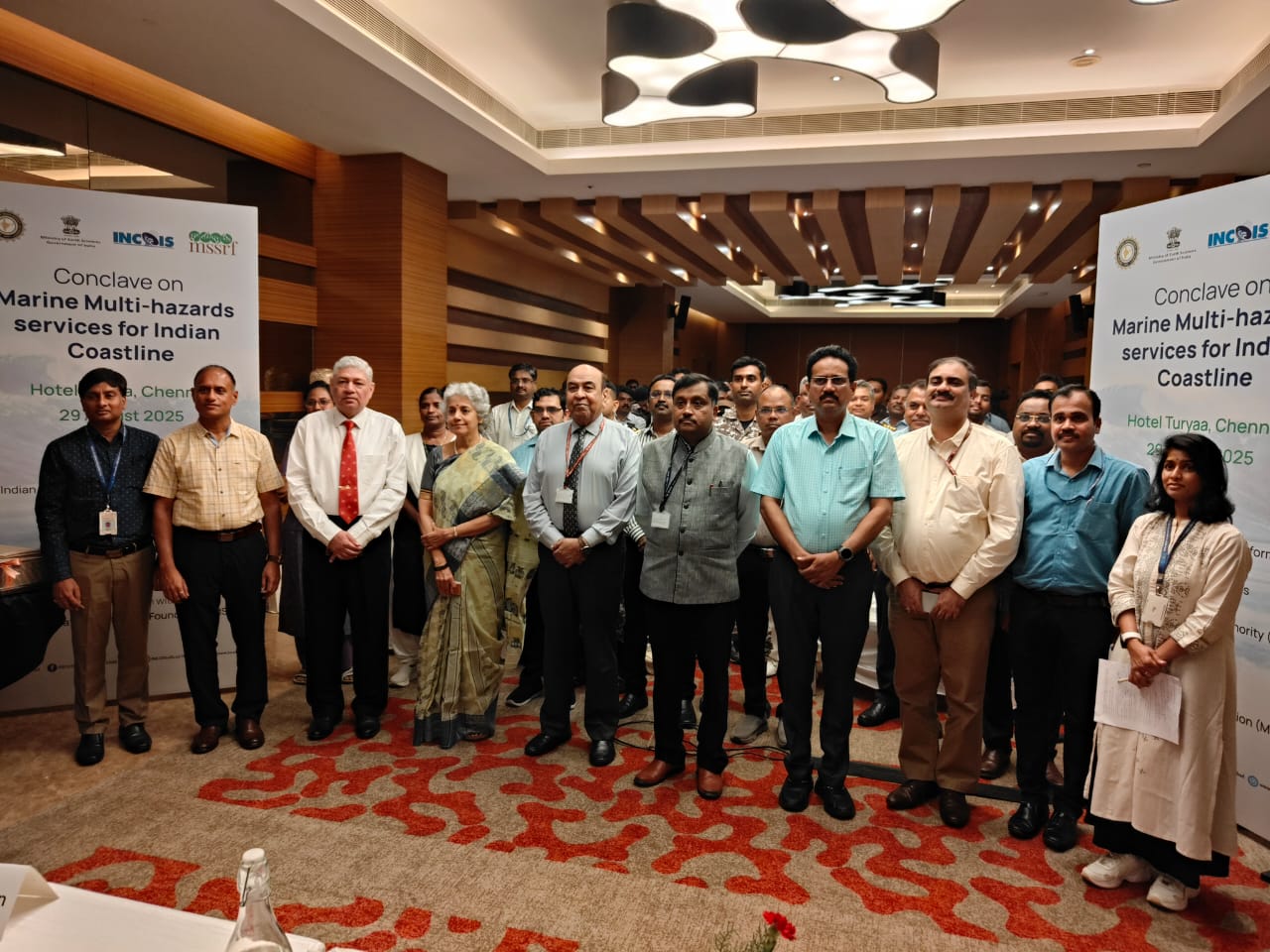
Prof. Balaji Ramakrishnan, Director of National Institute of Ocean Technology (NIOT), said the coordinated efforts of all institutions including MSSRF in disseminating Tsunami and Cyclone alerts have helped the coastal community to remain safe. Mr. Balaji talked about the Mission Mausam of the MoES for which ₹20,000 crore has been allotted to make the country ready for any weather challenges.
M.S. Swaminathan Research Foundation (MSSRF) Chairperson Dr. Soumya Swaminathan wanted the NDMA to create an emergency sea service similar to ambulance services for evacuating any fishermen who are facing any health emergency to be safely evacuated. Ms. Swaminathan highlighting the long-term health hazards caused to the fishermen community due to fast climate changes happening wanted heat index data to be recorded.
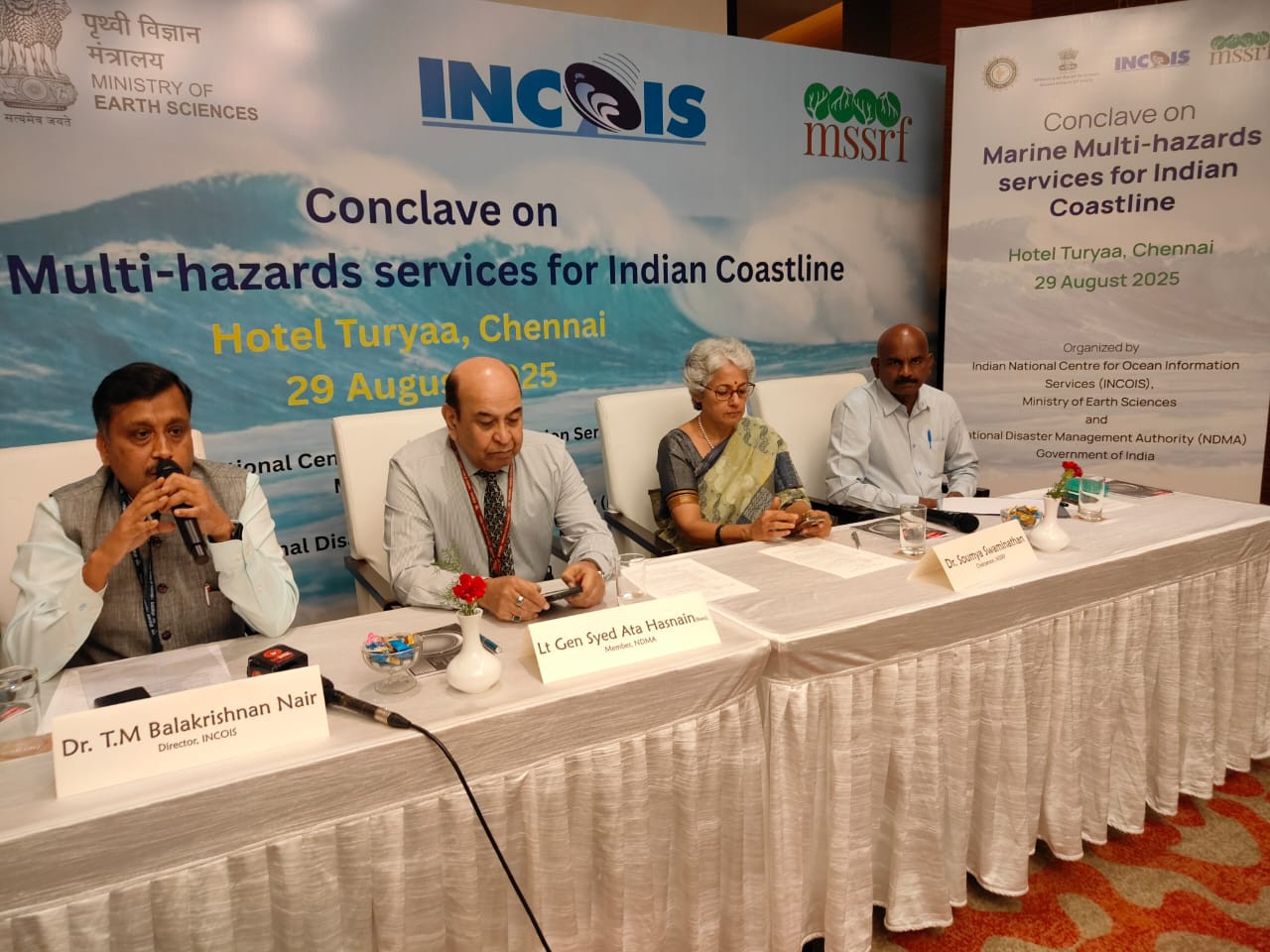
The day-long programme brought together senior officials, scientists, industry representatives, maritime forces and community stakeholders to strengthen India’s preparedness for marine-related hazards across the East Coast.
Programme highlights:
Operational services & innovations: Sessions covered ocean information and advisories, tsunami early warning, IOWave25 and UNESCO-IOC Tsunami Ready communities, storm surge/high wave/swell events, marine heatwaves, search-and-rescue aid tools, oil spill trajectory forecasting, and climate services.
Risk analytics: Multi-hazard vulnerability mapping to identify risk hotspots for lives, livelihoods and infrastructure was showcased.
Technology & research: Contributions from NIOT on ocean technologies for disasters and NCCR on coastal research advanced the science-to-policy interface for disaster risk reduction.
Policy & preparedness: NDMA guidelines and Tamil Nadu SDMA SOPs for ocean disasters reinforced the alignment between national frameworks and state-level implementation.
Outcomes:
Consensus to strengthen multi-hazard-ready communities and scale up state and district level implementation in collaboration with SDMAs, Navy and Coast Guard.
Agreement to deepen user-driven services for ports, offshore industries and fisheries, and to integrate feedback loops from field users into operations.
Commitment to leverage upcoming exercises such as IOWave25 to enhance preparedness, drills and inter-agency coordination.
The conclave advances India’s efforts to mainstream marine multi-hazard preparedness within disaster management frameworks, aligning national capabilities with international initiatives under the UN Decade of Ocean Science and the Sendai Framework for Disaster Risk Reduction, with the shared goal of safeguarding lives, livelihoods and critical coastal infrastructure.
SG/AD/KR
***
(Release ID: 2161929)
Visitor Counter : 1079